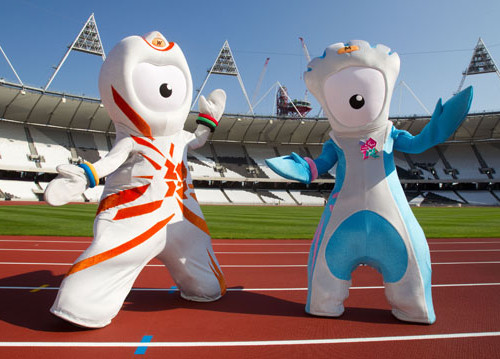With the London 2012 Olympics now just a few weeks away, the race is well and truly on for Olympic sponsors to get maximum value out of their investment. With so many powerful brands fighting for Olympics attention, competition to create the most engaging content is fierce.
Four years ago, Olympic sponsors such as Coca-Cola, BMW and British Airways would in all likelihood have just made conventional ads or attached their logo to pieces of content. But in today’s world where brands are increasingly seeking to be the content, not interrupt it, they have created something much more engaging.As part of their London 2012 sponsorship activity, Coke will create more than 120 pieces of content, compared with a measly three TV ads and six posters for Beijing 2008.
Coca-Cola – Move to the Beat
Never mind the smell of Olympic success, Coke has decided to bottle the sound of sport. One of their initiatives, ‘Move to the beat of the London 2012 Olympic Games’, is a collaboration between Coke and Mark Ronson which hopes to record the sounds of Olympic sports and transform them into something approaching music.
The attempt is captured in a 25 minute film aired on E4 which makes for entertaining viewing. It also captures the optimistic, global, youthful spirit reminiscent of Coke’s iconic ‘I’d Like to Teach the World to Sing’ ad from 1971 – another global harmony co-created by Coke.
BMW – The Ultimate Performance
BMW has taken a more philosophical approach, using Olympic athletes as a metaphor for their product as they explore what it takes to produce ‘The Ultimate Performance’. They created four short documentary films, directed by award-winning documentary makers and released one a week to keep consumers coming back for more.
One of the most successful is arguably ‘Power, Speed and Endurance’ directed by Asif Kapadia, the BAFTA award-winning director of ‘Senna’. He draws parallels between the golden age of athletics and of automobiles, so the audience can’t help but view both as high performance machines. It’s then just a short hop to ‘The Ultimate Driving Machine’.
British Airways – Boy
Perhaps the most ambitious, brave and emotionally powerful work though is from British Airways (BA). Their ‘Great Britons’ programme has led to the creation of a stunning film entitled ‘Boy’. This incredibly moving and beautiful nine minute story was penned by Great Britons winner Prasanna Puwanarajah and features Timothy Spall. The story is one step removed from the Olympic Games and feels more original and authentic for it, while elements set in the Olympic Park’s Velodrome ensure its relevance. It will be seen by up to six million BA passengers this summer; the fact that it is a silent film makes it all the more transportable.
With incredibly subtle branding, save for the end credits of the film, you might ask what’s in it for BA? Certainly they’re not getting the product placement of some brands, but for my money their modest approach is hugely powerful and shifts my perceptions of the brand in a way their recent advertising has failed to do. I admire them for their respectful and sophisticated engagement with the Games and I bet when passengers watch Boy on BA flights there is much sobbing in the aisles. And if you can make your audience cry, you’re halfway there.
It feels like a new era of sponsorship is dawning
One in which associations can and should be made to say a whole lot more about the brand than merely a proud supporter of…
The changing media landscape means that brands no longer have to interrupt audiences to get their attention; instead we can create conversations and gripping content that they’ll choose to engage with. As well as giving sponsors an additional way to talk to their audience, content provides a platform for those excluded from traditional advertising or awareness campaigns due to the prohibitive price tags.
At Red Bee Media, we believe content is the key to making sponsorships much more effective, achieving not just logo awareness, but a real attraction to your brand. Use content well and you’ll raise awareness, deepen engagement and convert an audience into a customer base.
What do you think? Is content now an essential part of 21st century sponsorships? Can non-sponsors use content to create an association not possible elsewhere due to tight regulation?






